WordPress has become one of the most popular platforms for creating websites, and with good reason. It offers a wide range of plugins and themes that can enhance the functionality and design of any website. One such plugin that has gained popularity among WordPress users is WP Event Manager.
In this review, we will take a comprehensive look at the features, pros and cons, installation process, real user reviews, and overall effectiveness of WP Event Manager for event management on WordPress websites.
Quick Verdict
WP Event Manager is a powerful plugin that allows users to easily manage events on their WordPress websites.
Whether you are hosting a small meetup or a large conference, this plugin provides all the tools you need to create, manage, and promote your events effectively. With a user-friendly interface and a wide range of features, WP Event Manager is a must-have tool for anyone looking to streamline their event management process.
Moreover, this feature-rich plugin comes with tutorials and guides to help users get the most juice.
What is WP event Manager?
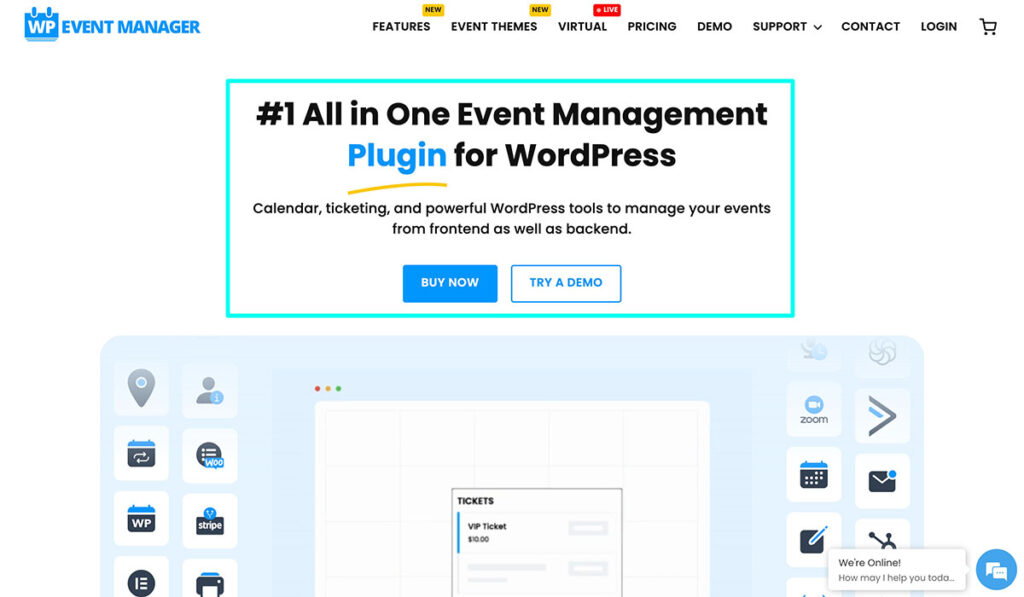
WP Event Manager is a WordPress plugin that helps you create and manage event listings on your website. It also allows collaboration as you can invite other registered members to submit their events on your site.
Beyond displaying your event, the plugin provides a dashboard where you can categorize, manage, and promote events.
WP Event Manager Pros and Cons
Pros 👍
- It offers the freedom to submit listings from both the backend and the frontend
- It’s compatible with all devices and most add-ons
- Customization doesn’t alter the original template
- It’s SEO-friendly
Cons 👎
- The plugin requires paid add-ons for certain features.
- Some advanced features may require additional plugins
WP Event Manager Plugin Features
WP Event Manager is feature-rich and provides the following:
- The field editor allows you to edit your listing at any point without coding.
- You can customize the plugin to enhance its core features and functions.
- It’s SEO-friendly
- WP Event Manager is fully responsive across all devices.
- The plugin allows multiple views so that you can view event listings in a box or list format.
- The plugin allows users to preview events before they go live so they can make quick changes.
- It classifies events such that visitors can easily find events by categories and event types.
- The plugin provides a dashboard for allows users to see multiple events at once
- Users have access to various options and settings that helps them create an attractive event management portal.
- The event widgets provide chronological and structured details that allow customization.
- Users can organize multiple events, organizers, and venues with a single account.
- The plugin will enable you to customize templates without altering the original template.
- It provides translation support in multiple languages so users can reach out more. You can also use a third party translation plugin.
- The plugin is compatible with Gutenberg and other major third-party page builders such as visual composer, Elementor, and more.
Who Needs a WP Event Manager?
WP Event Manager has an intuitive user-interface that doesn’t require coding. So, anyone who wants to display their events can use this plugin regardless of their technical skills.
WP Event Manager works well with live and online events.
Let’s assume your NGO is planning a fundraiser and wants to inform invitees of the program. You can use the plugin to list the event title, duration, speakers, and any other information you’ll want them to know. You can also use it if you are running a blog that talks about other people’s events.
Other people that can use the plugin include:
- Webinar hosts
- Fitness trainers
- Admins of any social group
- Sellers of concert tickets, and more
In a nutshell, the plugin is for everyone.
WP Event Manager’s Pricing
WP Event Manager is free. However, the complementing add-ons come at two prices.
The first group of add-ons costs $19 for the personal plan and $49 for developers. This group include
- Bookmarks
- Embeddable Event Widget
- Sliders
- Event Tags
- Contact Organizer
- Google Analytics, and
- Emails
The second group cost $39 for the personal plan and $99 for developers. This group includes:
- Calendar
- Google Maps
- Registrations
- Sell Tickets
- Attendee Information
- Zoom
- WooCommerce Paid Listings
- Recurring Events
- Alerts
- Colors
- Export Events
- iCal, and
- Google Recaptcha
Bundle Packages
The Personal Bundle combines all the plugins described above in a package at $235.
The Developer Bundle also combines all the plugins in a package but is exclusively for developers. This package allows them to use one license key for five different domains at $499
WP Event Manager Migration
WP Event Manager Migration facilitates the transfer of events, organizers, and venues from other places to the WP Event Manager. It will first save the event data in CSV files to make it easy to import. Albeit, you must have WP Event Manager to have access.
WP Event Manager Add-Ons
WP Event Manager’s core plugin is free. Albeit, the following add-ons will help increase the conversion rate.
Calendar

With this plugin, you can display an event calendar that shows upcoming events on your website. The 31-day layout offers users full visibility to quickly access the information for their preferred events.
When they hover their cursors over any event on the calendar, a pop-up shows the event’s details. The pop-up will display the image provided by the event organizer, event name, and date.
You can also use the calendar as a widget on your sidebar and footer to attract your customers.
The calendar offers a shortcode that makes it easy for non-programmers. It shows events in chronological order to view the details of the present, past, and future events on the same page.
Google Maps
This add-on allows you to get a clear view of all the event locations. The auto-correct feature enables users to type events faster, while filters help to streamline the search. Then it will project the event on a map to show the specific location.
It also allows proximity search for users who don’t want to travel far to search for events near them.
Attendees can place an order by title, distance, date, or places that featured the event.
Registrations

With the registration add-on, invitees can register your events as attendees. You can manage all registrations on the dashboard.
The add-on allows the registration of multiple attendees at once. The event manager offers a waitlist where guests can register and wait for a slot.
The well-designed registration dashboard shows an overview of registration details like:
- Registration status
- Confirmed registration
- Archived registration
- Canceled registration
You’ll also see buttons that make it easy to export and download CSV files.
The registration plugin transfers all the registered attendees to a separate dashboard. You have total control over who attends the event because those in the waitlist need your confirmation.

The plugin will add a conspicuous “registered” button to help users differentiate registered events from others.

Admins have access to a backend registration form if they choose to register their customers manually.

As an admin, the plugin offers you the same privileges as an event manager. The backend dashboard allows you:
- Confirm registration
- Check how many tickets an attendee bought.
- Send emails to participants
- Alter check-in and check-out status
So, you can manage events with little or no help.
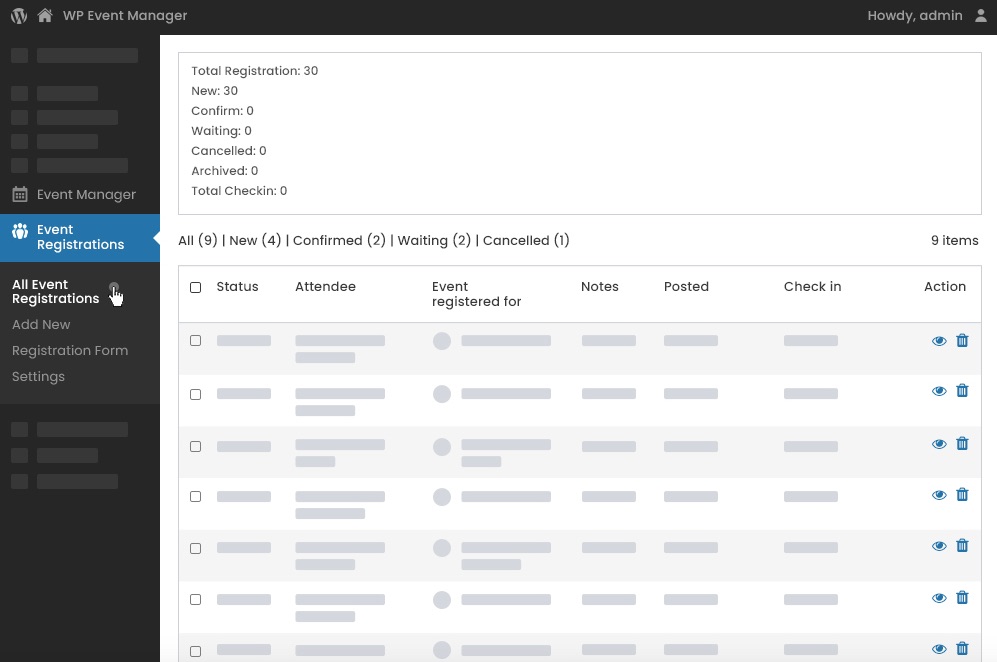
Sell Tickets
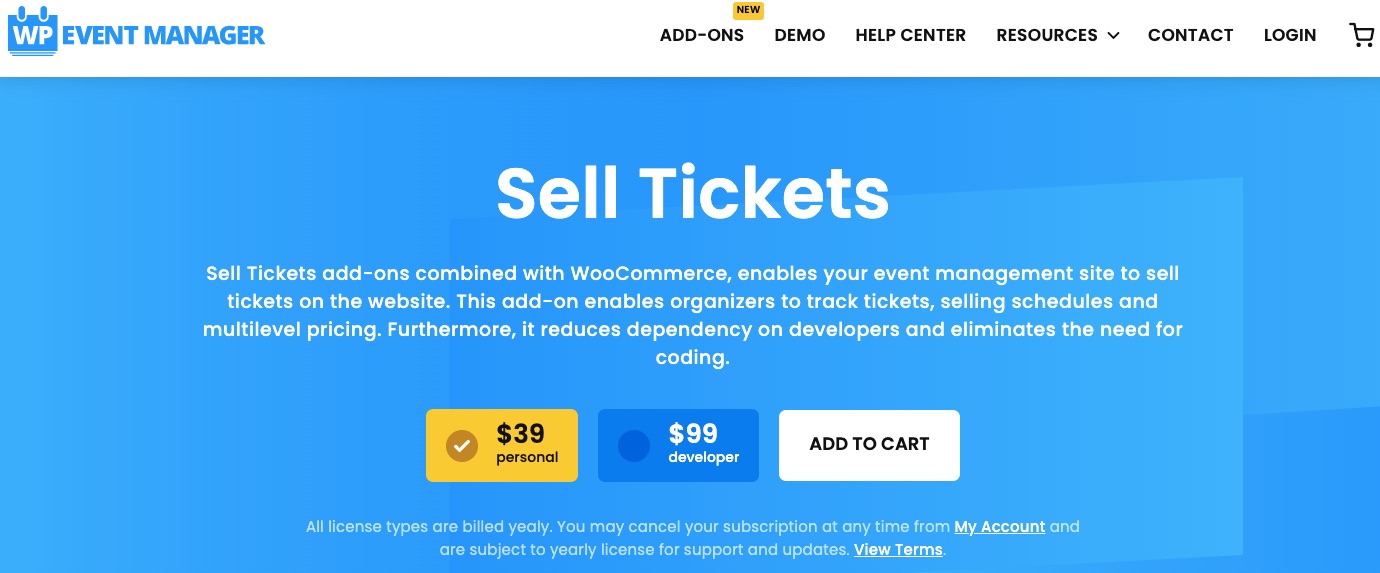
This add-on integrates with WooCommerce to provide customers over 100 secure payment gateways. You can schedule and track the sales of event tickets in one place.
It provides a ticket information block that shows:
- The start and end date for ticket sales
- Price model
- The total number of tickets for the event
It automatically creates purchase records and generates tickets effortlessly. Once you approve the order or payment, the add-on emails the ticket to your customer.
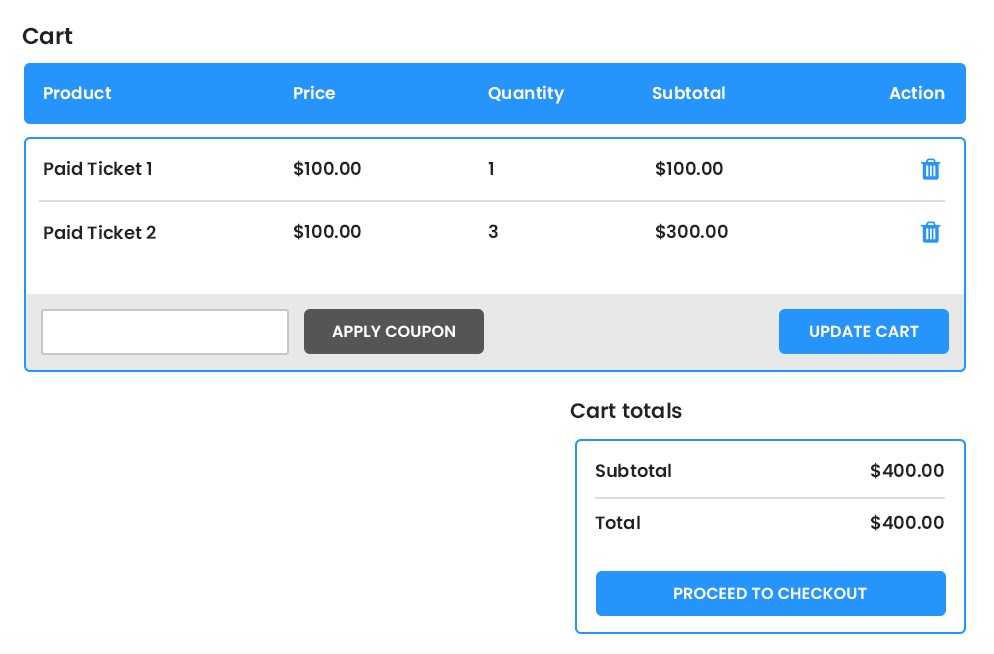
The tickets have clean, functional QR codes so that you can use a third-party app scanner or a mobile app to check-in or check-out attendees.
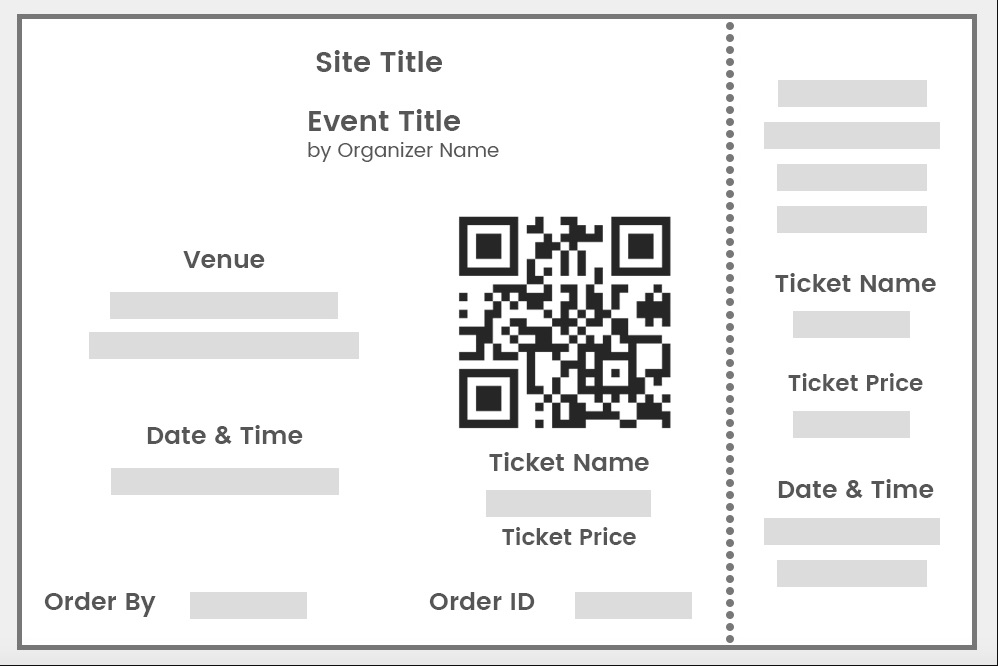
Attendee Information
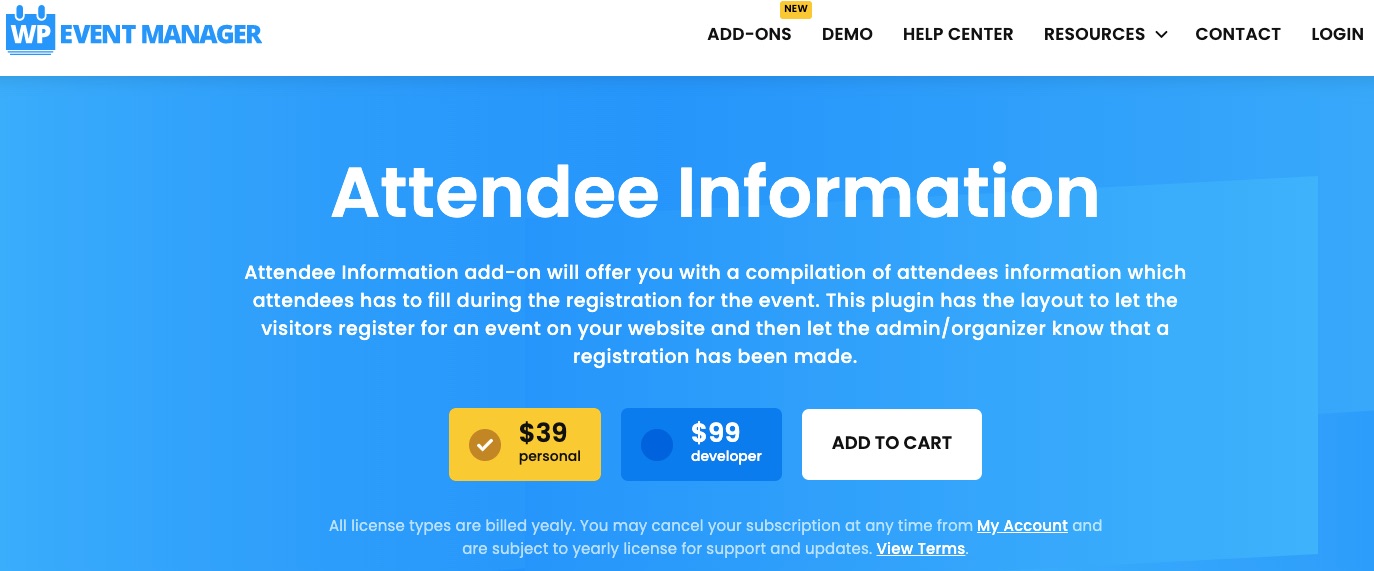
The attendee information add-on compiles the forms that attendees must fill for the registration. It also informs the organizer or admin when registration is complete. It permits buyers to decide if they want to enter the names of multiple users or enter the buyer’s information on all the tickets.

Zoom
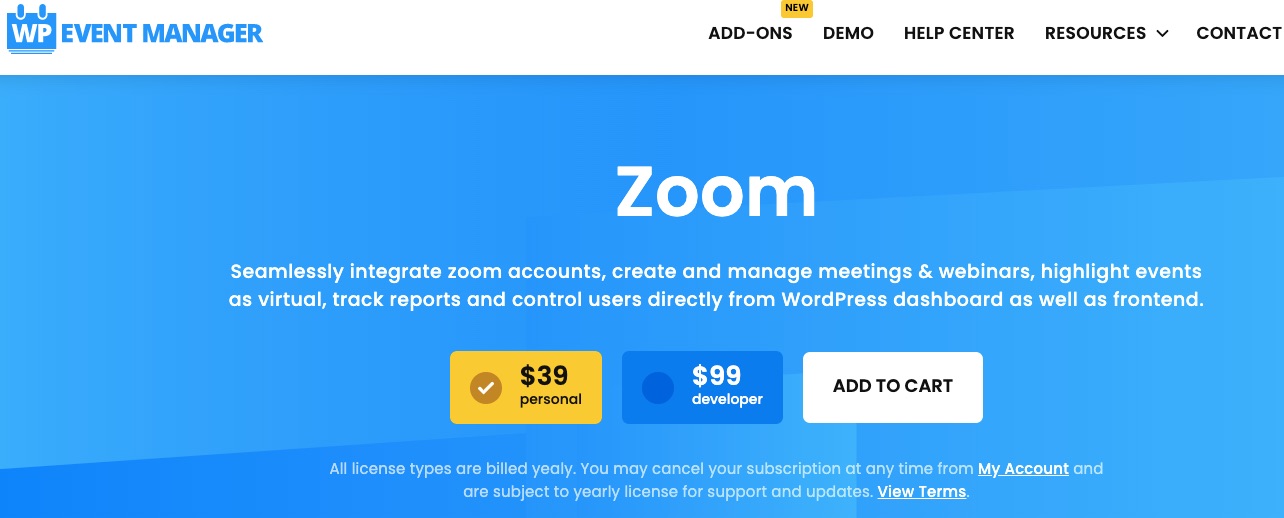
Hosts and organizers don’t have to depend totally on the admin’s account. They can connect their Zoom account on the frontend to have webinars and selling meetings. The admins won’t have to do anything at the backend because the hosts or organizers can:
- Create meetings
- Add users, and
- Bind events
When they perform these activities at the frontend, it automatically reflects on the backend.
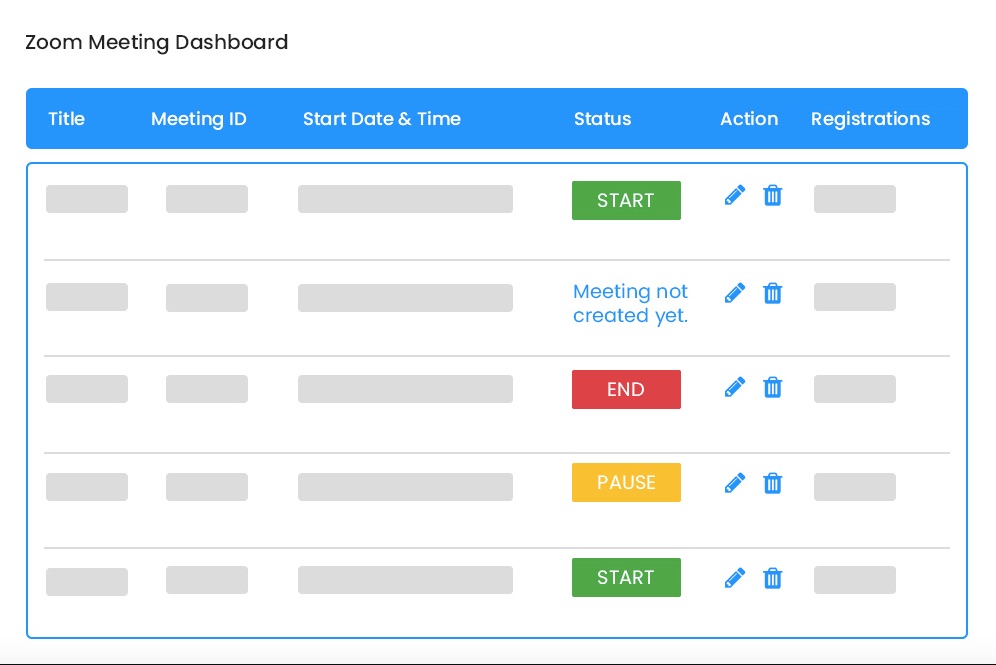
WooCommerce Paid Listings
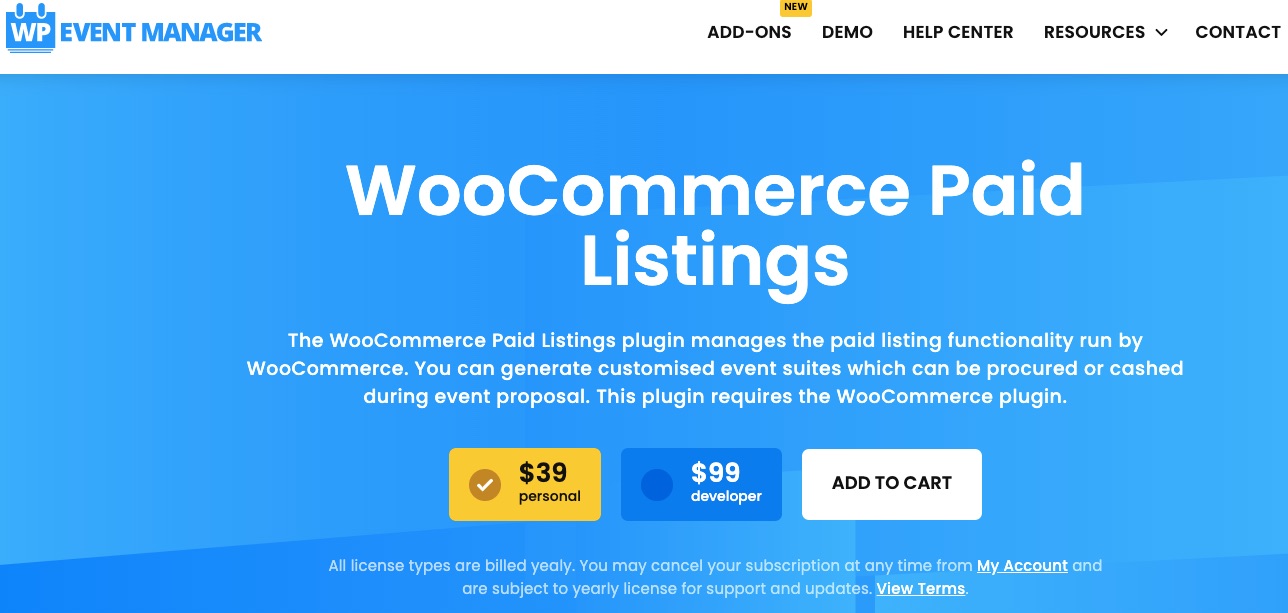
Users can use the WooCommerce paid listing plugin to create subscription packages. It allows you to pack several events together and build free or paid packages. You can base the prices on each package on the duration of the events.
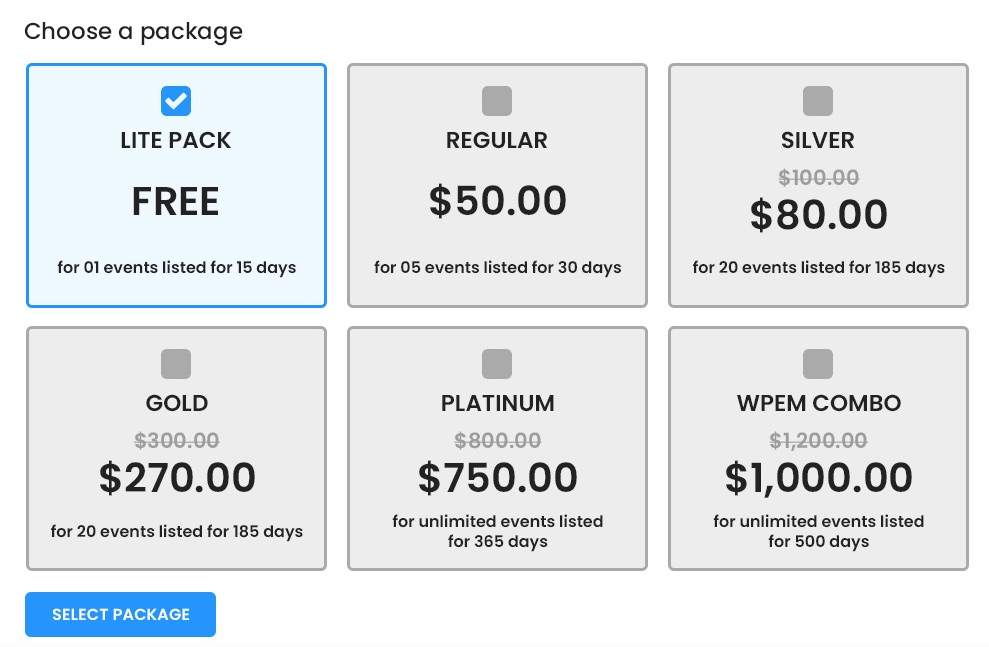
The plugin allows you to segment users as they choose their package.
Recurring Events
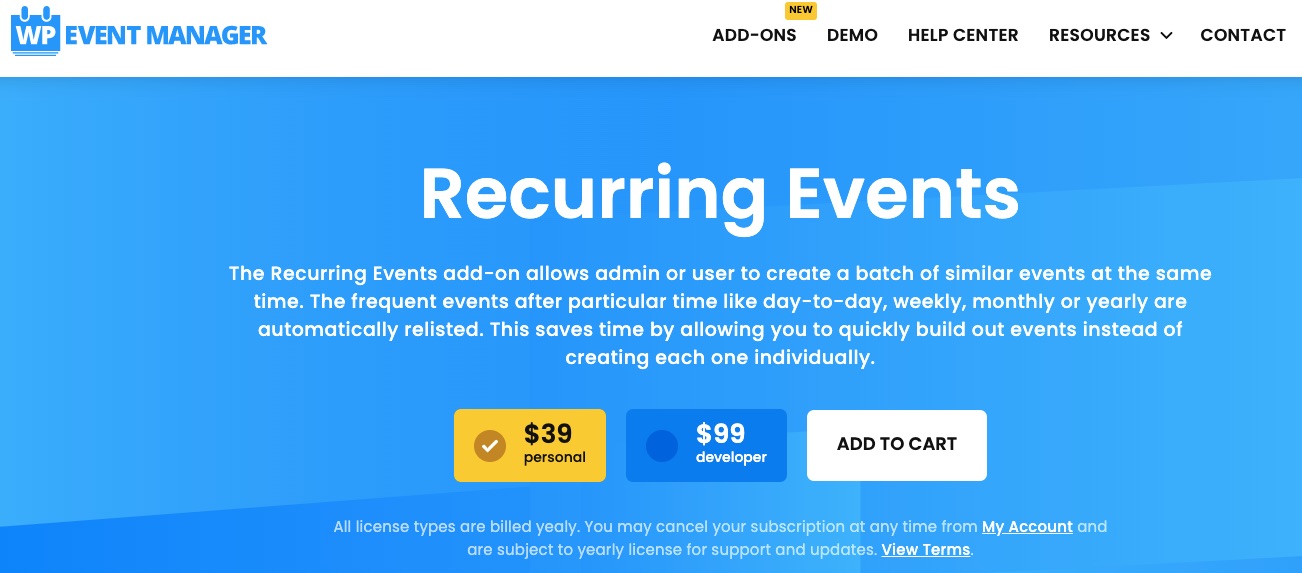
Users or admins can use the Recurring Events add-on to create several batches of similar events at once. If the events happen daily, weekly, or yearly, the add-on automatically re-lists it to save you time. Plus, you can manage all recurring events on your dashboard.
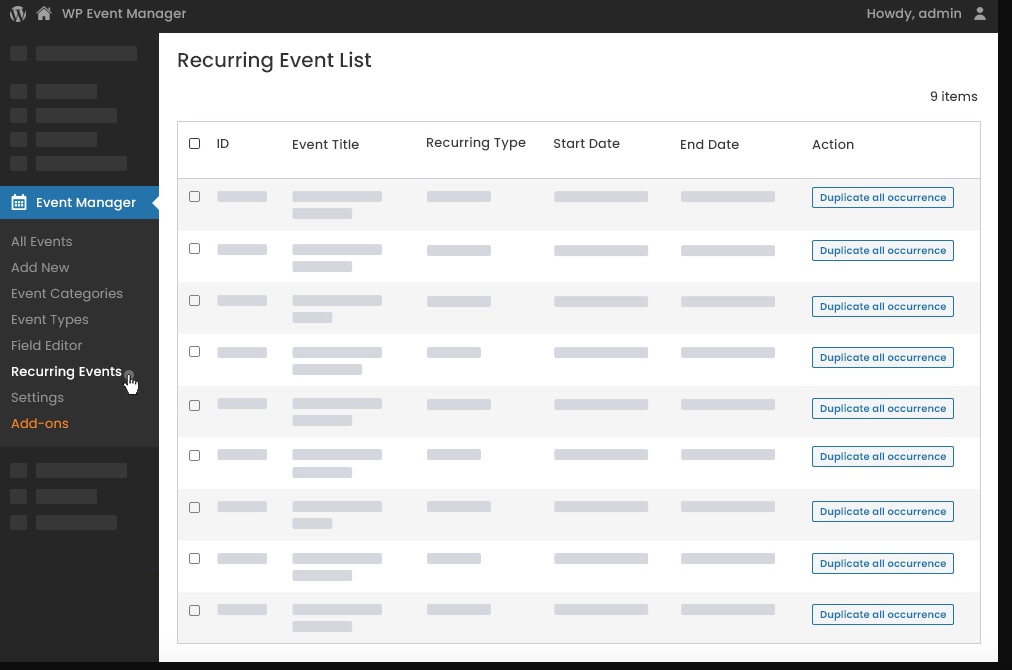
The dashboard shows you:
- Event Title
- Event ID
- Recurring type
- Start Date
- End Date, and
- Action
Alerts
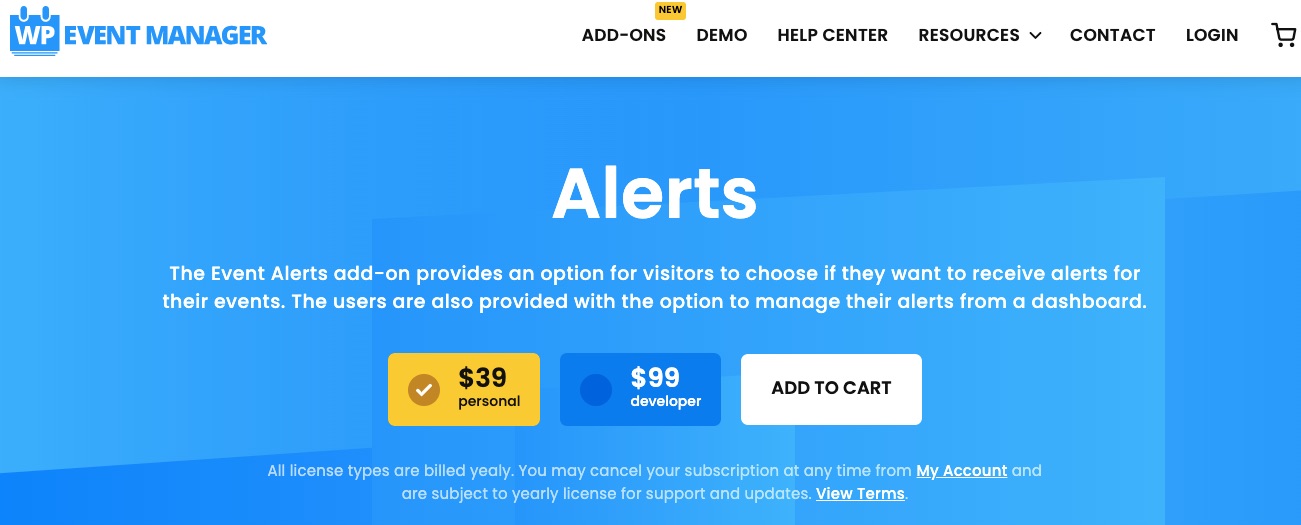
This add-on helps you create personalized alerts for your customers. It provides a form for your users to fill and choose how often they want you to remind them. They’re allowed to choose their categories, tags, preferred keywords, and more.
Emails
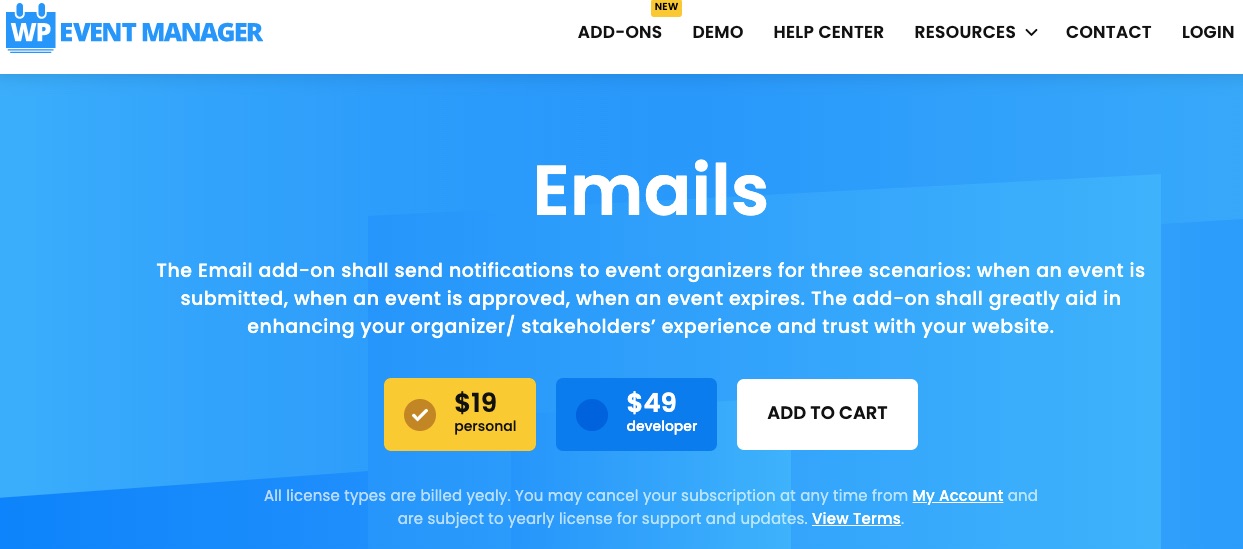
Organizers get notifications from the Email add-on when an event is:
- Submitted
- Approved, and
- expires
Although WordPress’ admin panel offers email notification, you’ll spend hours coding if you want it customized. But with this add-on, send custom emails once a user performs any of the above activities.
Bookmarks
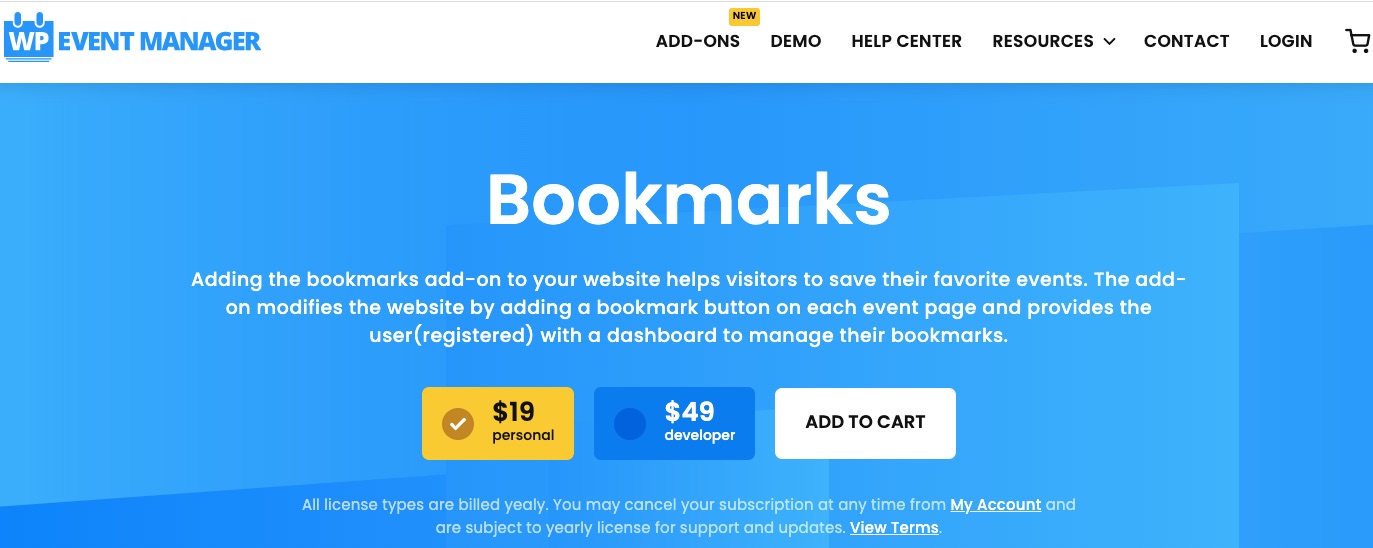
When you have this add-on on your site, visitors can save their events by clicking the bookmark button on the event page. This ability for users to personalize their bookmarks saves them time and brings them back to your website. Registered users are allowed to make notes on their bookmarks on the event page and revisit them as often as possible.
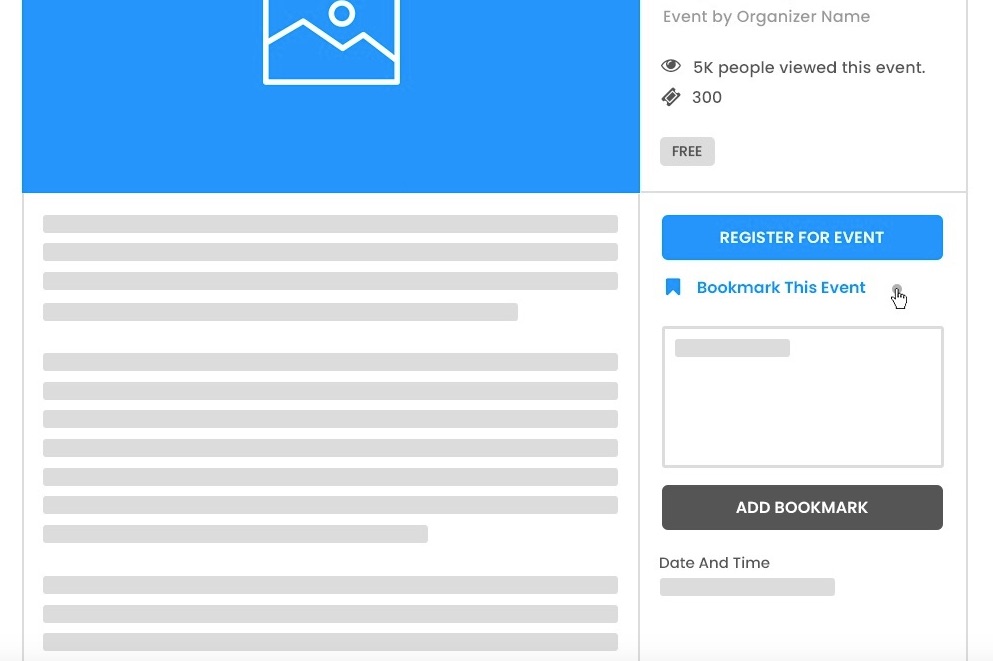
It also provides a dashboard for the user to manage all their bookmarks. So users can view events, take notes, and delete.
Embeddable Event Widget
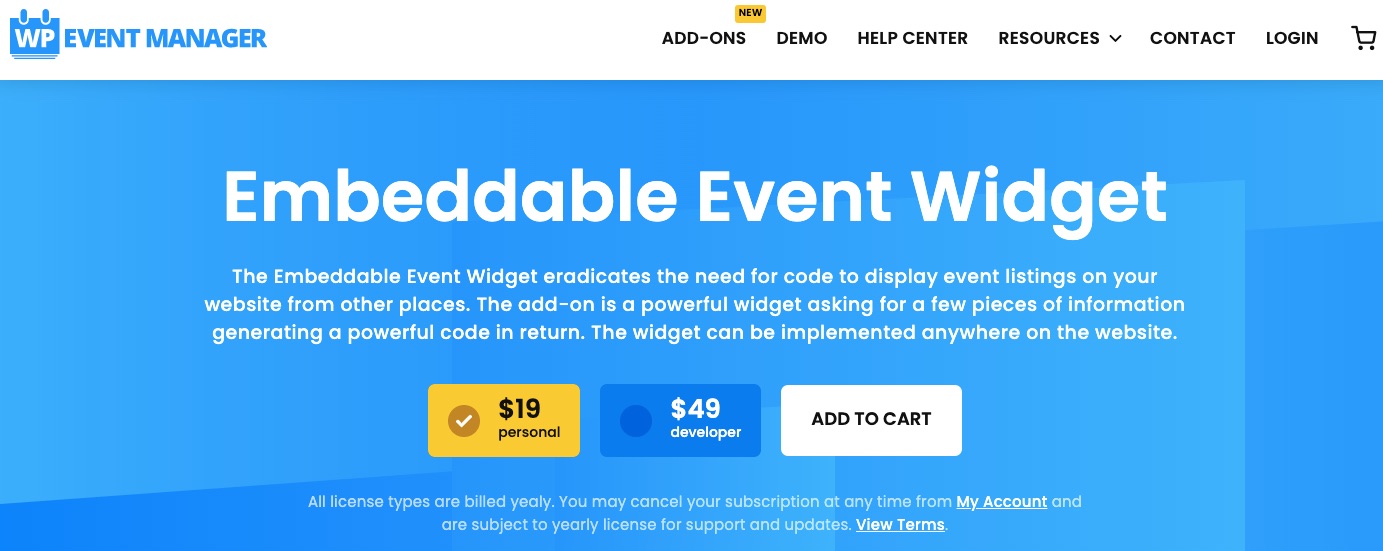
The embeddable Event Widget allows you to take event listings from other places and display them on your site. It generates a powerful code from pieces of information that it collects. You can customize and place the widget anywhere on your website.
To create your embeddable widget, you need to add:
- Location
- Pagination
- Specific keyword
- Display count
- Categories
- Event type, and
- Categories
Colors
This add-on allows you to choose the colors for different categories and event types in your event listing to attract attention.
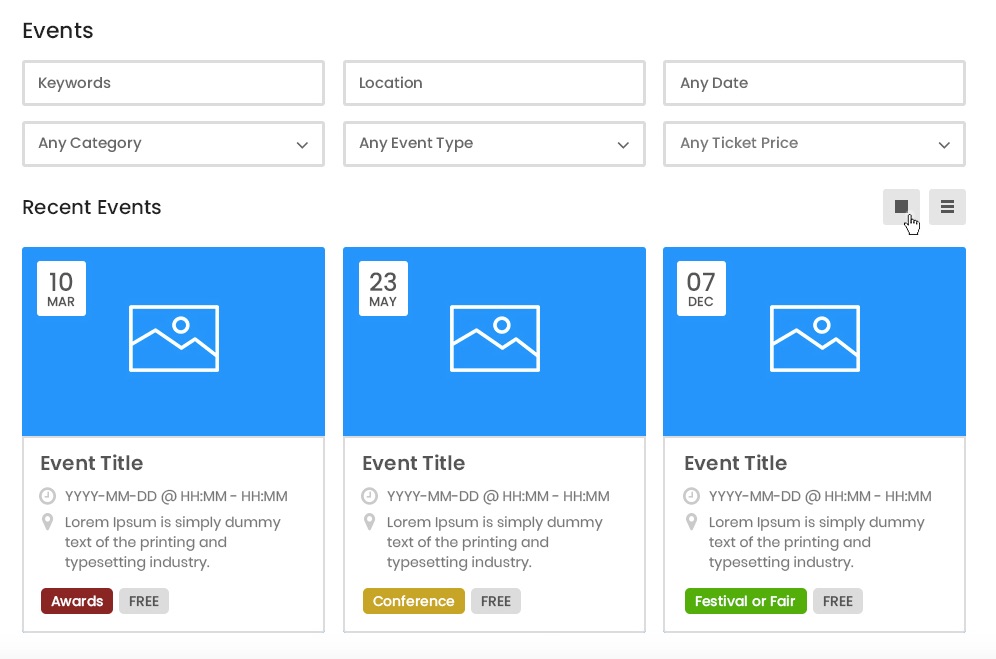
Sliders
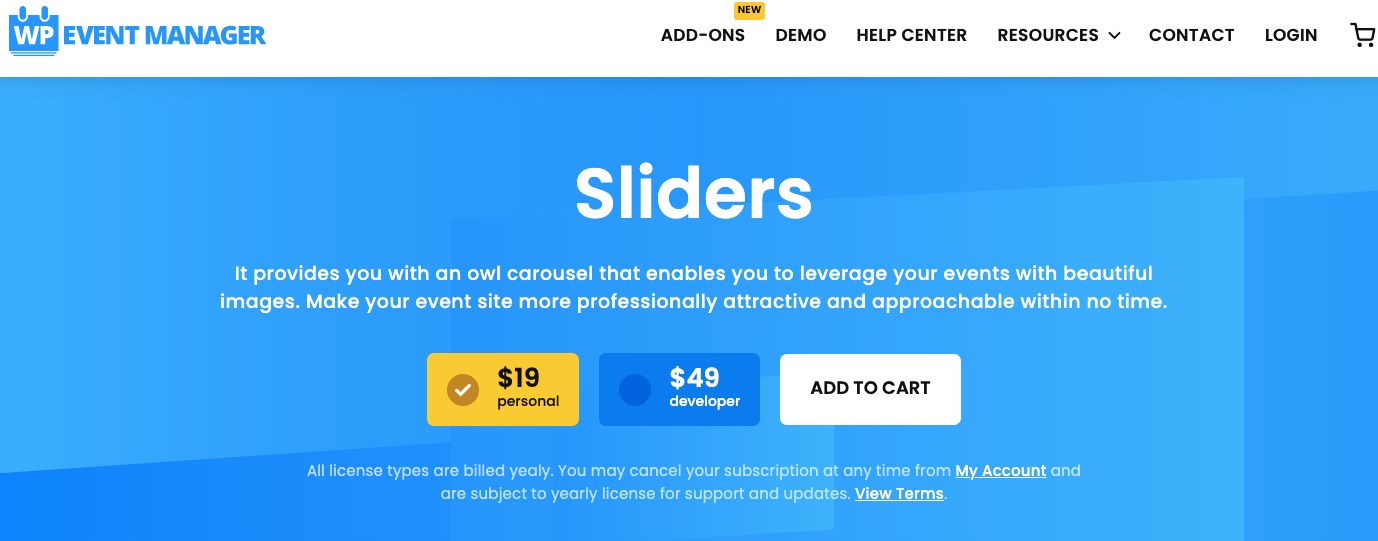
With a brief description of the event, its organizers, time, and type, the add-on can generate a shortcode. All you need to do is use the shortcode to make the slider for your event.
The slider solves all compatibility issues by being responsive across all devices.
Event Tags
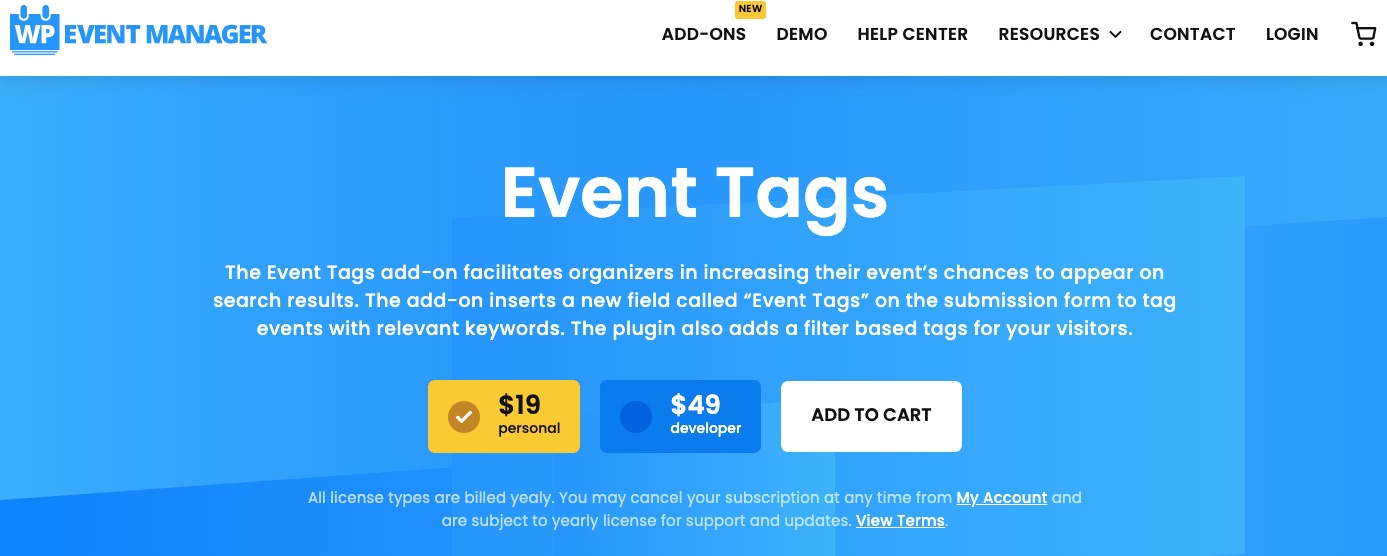
This add-on allows organizers to tag their events with relevant keywords and increase their visibility on search engines. It includes a field to your submission form that will enable you to add tags that describe the event.
Unlike categories, you can use as many keywords as you feel your customers might use to describe our event. You can also use the tags as filters to help your users streamline their search.
Contact Organizer
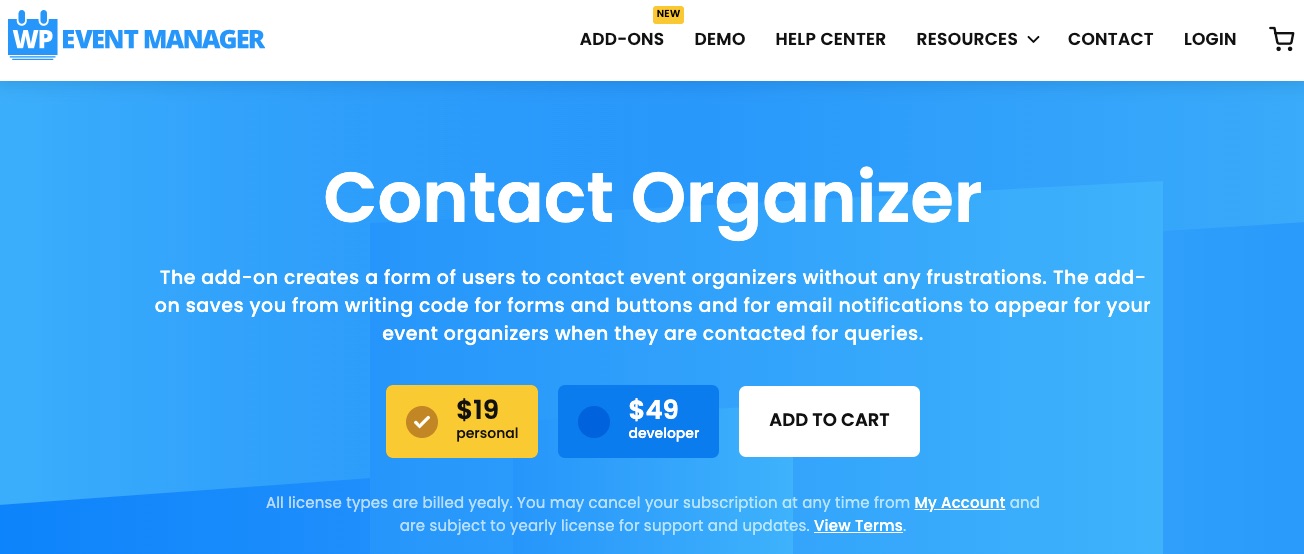
This add-on provides a form for users to contact the event organizers. In the form, users will make their request with relevant details that’ll help you give a good response. As they submit the request, it triggers an automated email to the organizer.
Export Events
The Export events add-on is a CSV exporter that ensures that you’re able to back up your events. It appears as a “Download Events CSV” button on the backend and frontend of the “All Events” page.
It offers you two options for downloading your events. By default, you can all the information, but with the custom option, you can only download customized details.
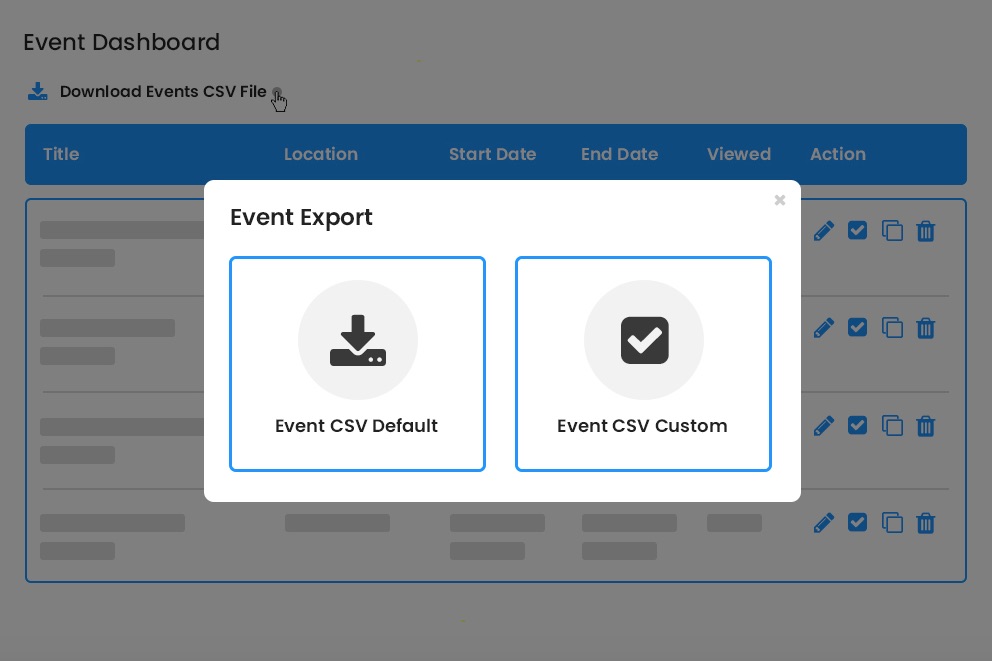
iCal
The WP Event Manager’s iCal plugin allows you to display the events from your website to google calendars and other calendars. It generates an ICS file from events listings. So, the plugin enables Google calendar to remind your users of events that you’re hosting.
Google Re-captcha
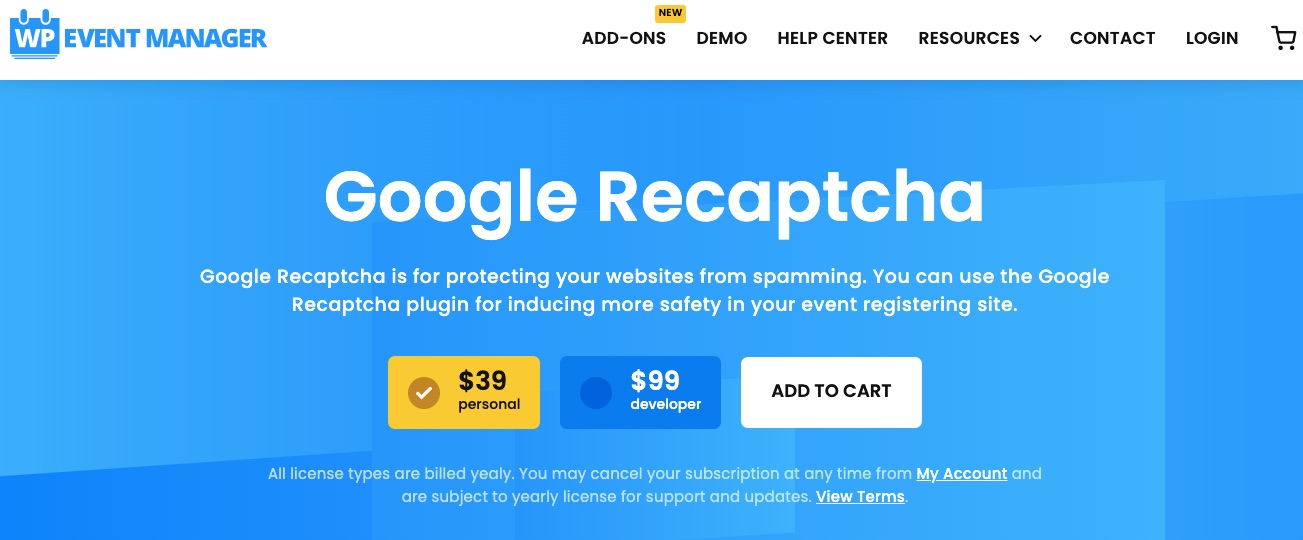
This plugin gives your website more safety by protecting it against spam submissions and comments.
Google Analytics
This add-on adds Google Analytics code to your website to help you measure the progress of your events. It also shows how well your visitors engage with your website. Albeit, you must first have a Google Analytics account to get the code.
When you receive your Google Analytics code, paste it in your admin panel’s Google Analytics tab.
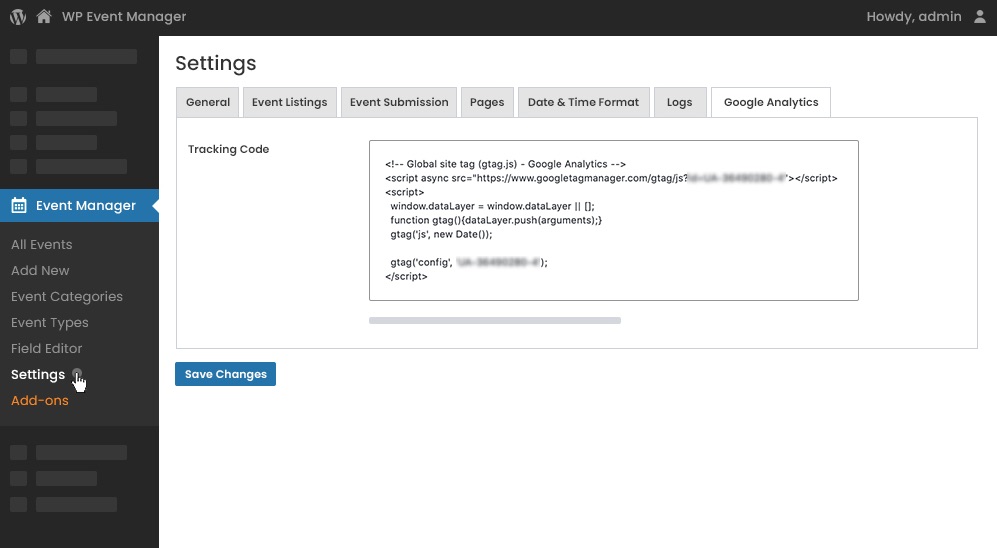
Customer Support
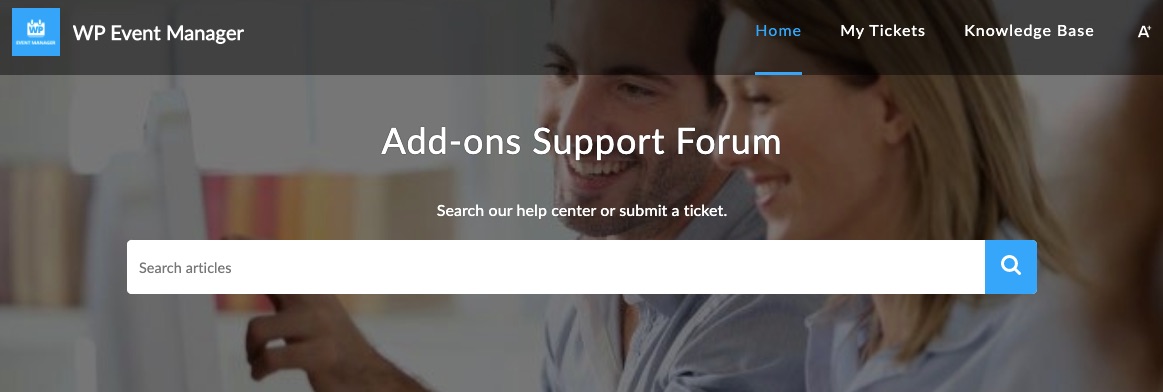
You can search for articles in the help center or submit a ticket with the detailed information you provide for support.
The help center provides you with FAQs, knowledgebase, and video tutorials to help with your search. If you can’t find what you’re looking for, you can submit a ticket.
You must fill all the fields before you can submit your request.
How to Get WP Event Manager
To get started, go to the WP Event Manager’s website. Click “Get It Free Now” or scroll down and click get started.
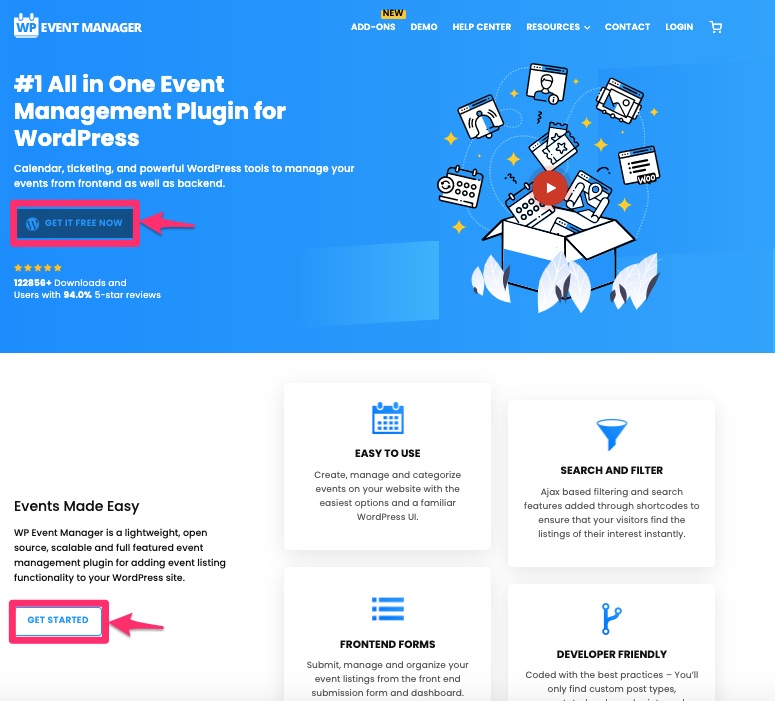
The first will take you to WordPress.Org to download the plugin.
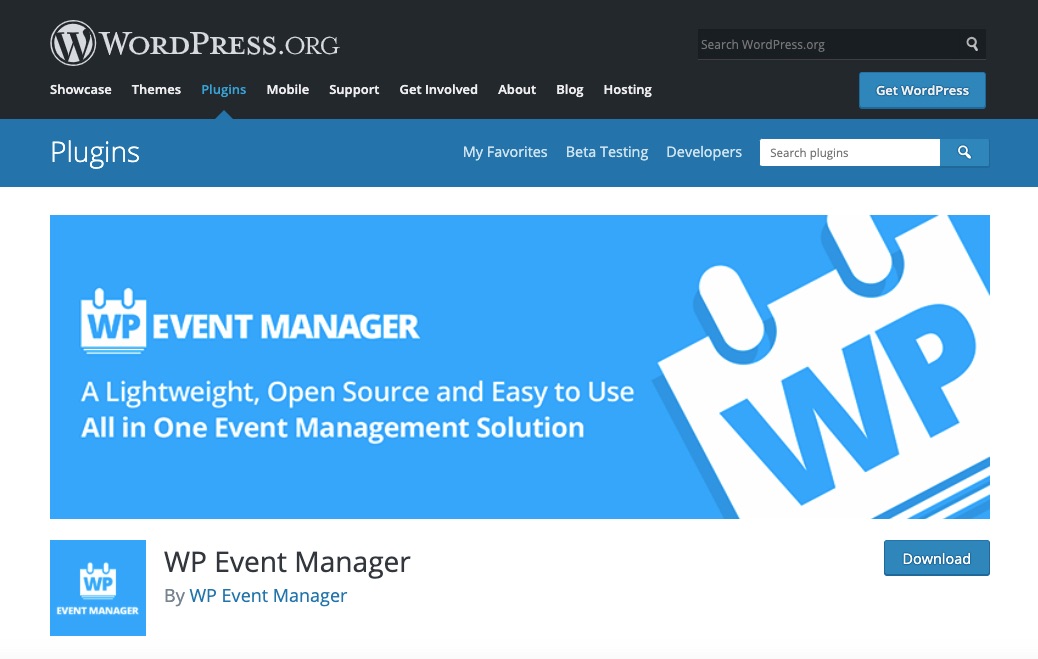
Whereas, the second will lead you to download it within WP Event Manager’s product page.
Conclusion
WP Event Manager is one of the most accessible WordPress plugins to use for event management. It is intuitive and lets you manipulate your event listings with little or no coding skills.
You’ll find this plugin useful if you hold meetings, conduct training sessions, live webinars, and other activities that your customers must converge at a specific time.




Comments 0 Responses